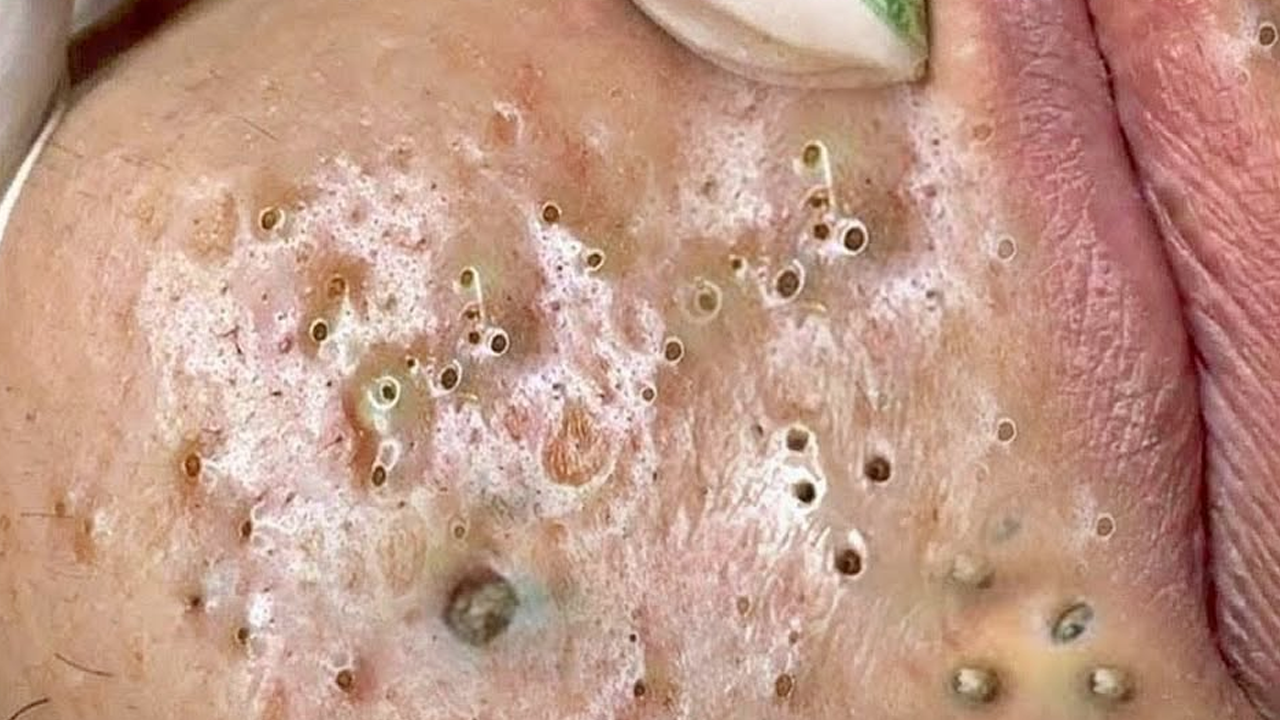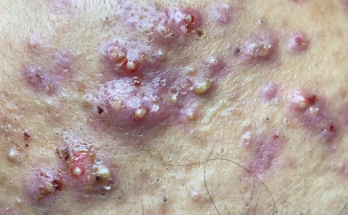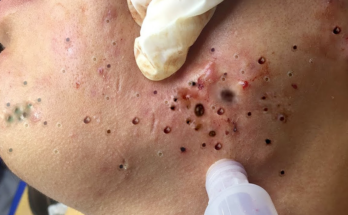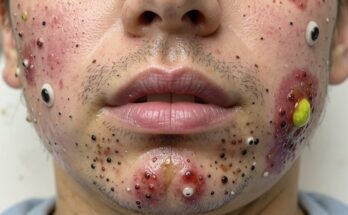The Blackhead Enigma: Understanding and Conquering Clogged Pores
Blackheads, those pesky dark blemishes that seem to appear overnight, are a common skin concern. But what exactly causes these unwelcome guests? This comprehensive guide will delve into the science behind blackheads, providing effective strategies for prevention and treatment.
The Root of the Problem: What Causes Blackheads?
Blackheads, scientifically known as open comedones, are formed when a combination of dead skin cells, excess sebum (oil), and bacteria gets trapped within a hair follicle. This blockage prevents the natural exfoliation process, leading to a clogged pore. The trapped sebum oxidizes upon contact with air, resulting in the characteristic dark appearance of a blackhead. These blemishes typically appear on the face (nose, chin, forehead), but can also crop up on the chest and back.
Understanding the Clogged Pore
The fundamental issue lies in the pore itself. When pores become congested, they fail to properly release dead skin cells and excess oil. This buildup creates the perfect environment for bacteria to thrive, ultimately leading to the formation of blackheads.
Effective Strategies for Blackhead Prevention
Preventing blackheads is far easier than treating them. A proactive approach to skincare can significantly reduce their appearance and frequency.
1. Gentle Cleansing: The Foundation of Clear Skin
Washing your face twice daily with a gentle, non-comedogenic cleanser is crucial. This removes excess oil, dirt, and impurities that contribute to clogged pores. Look for cleansers containing ingredients like salicylic acid or benzoyl peroxide, which help dissolve oil and dead skin cells. Avoid harsh scrubbing, which can irritate the skin and worsen the problem.
2. Exfoliation: Unclogging the Pathway
Regular exfoliation (two to three times a week) is essential for removing dead skin cells that contribute to pore blockages. Chemical exfoliants are preferred over harsh physical scrubs. Salicylic acid (BHA), which penetrates pores, and glycolic or lactic acid (AHAs), which remove surface dead skin cells, are excellent choices.
3. Harnessing the Power of Masks
Clay masks (bentonite or kaolin) and charcoal masks can be incorporated once or twice a week. These masks work by absorbing excess oil and drawing out impurities from the pores, helping to prevent blackheads.
4. The Nightly Ritual: Retinoids
Retinoids, such as over-the-counter retinol or prescription-strength tretinoin, are highly effective in unclogging pores over time by increasing cell turnover. Start slowly with a few applications per week and gradually increase frequency to minimize irritation.
5. Hydration is Key: Moisturizing for All Skin Types
Even oily skin needs hydration! Use a lightweight, oil-free, non-comedogenic moisturizer to maintain a healthy skin barrier. This prevents the skin from overproducing oil in an attempt to compensate for dryness.
6. Sun Protection: Shielding Your Skin
Daily sunscreen application is crucial, not only to protect against sun damage but also to prevent irritation that can exacerbate blackheads. Choose an oil-free, non-comedogenic formula.
7. Resist the Urge: Avoid Squeezing Blackheads
Picking or squeezing blackheads can push bacteria deeper into the skin, leading to inflammation, scarring, and potential infection. Resist this urge and rely on proper skincare treatments instead.
When Professional Help is Necessary: Seeking Expert Advice
While a consistent skincare routine can effectively manage blackheads, persistent or severe cases may benefit from professional intervention.
Seeking a Dermatologist’s Expertise
A dermatologist can provide tailored advice, perform professional extractions, recommend stronger topical treatments (like prescription retinoids or benzoyl peroxide), or consider other treatments like chemical peels or laser therapy. They can also assess if underlying hormonal imbalances are contributing to the problem and recommend appropriate treatment. For severe acne, oral medications such as antibiotics or isotretinoin may be necessary. Don’t hesitate to seek professional help if home treatments prove ineffective or if your blackheads are causing significant distress.



